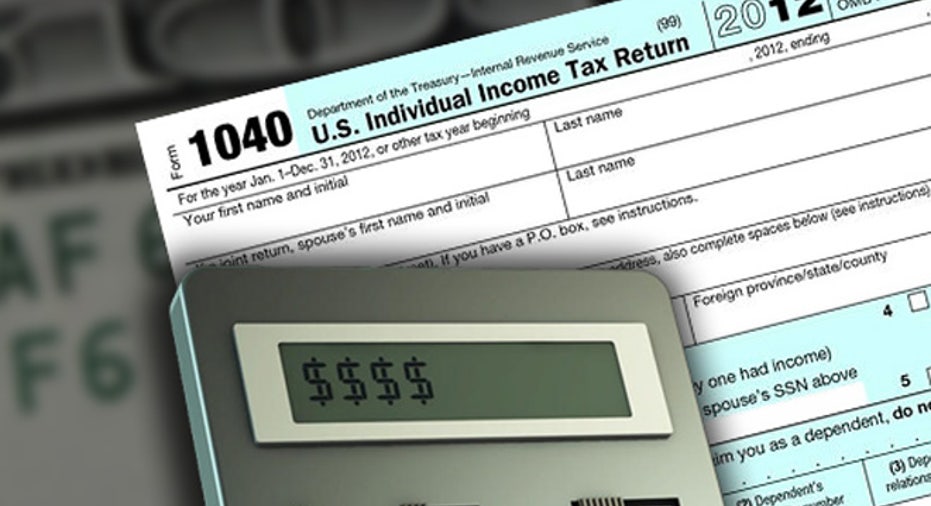6 Crucial Tax Deductions

“Another year, another tax form to submit,”… or, you could think, “Another year, another opportunity to claim tax deductions and save money!” Let’s all go with the glass half-full approach this year, and consider these tax deductions that are sometimes overlooked or ignored.
1. State and Local Taxes – This deduction is among those given a last minute reprieve from expiration by Congress in December. You can deduct state and local taxes paid in 2014 either on income taxes or on sales taxes (but not both). For residents in states without state income taxes such as Florida or Texas, deducting sales taxes can result in significant savings.
For most people that pay state income tax, that amount is greater than the collective sales taxes, but if you purchased big-ticket items or live in a state with a high sales tax rate, you may be better off deducting sales taxes.
You can total up sales tax on all your receipts if you choose, but why would you… when you can use the IRS Sales Tax tables (located in the Schedule A Instructions), or use the IRS Online Sales Tax Calculator. In both cases, sales taxes on big-ticket items are added on top of the values you get from the IRS. Keep your receipts as a reference.
2. Personal Property Taxes – The personal property taxes you pay on items such as a car or a boat may be deducted. However, the taxes must be imposed on an annual basis. They must also be based only on the value of the asset – otherwise, you can only deduct the portion of the tax that was based on value.
3. Charitable Contributions – Any gifts that are made to a Section 501(c)(3) qualifying charitable organization may be claimed as a deduction. Qualifying charitable organizations include churches and most non-profit organizations; political contributions and donations to specific individuals are excluded. Organizations should be able to tell you their qualifying status, but you can double check with an online search tool at the IRS website.
Cash donations (including credit cards) require bank or payroll deduction records to verify the transaction, or a written receipt with the organization’s name and contribution date and amount. Text donations may be verified through phone bills as long as the bill shows the same information used to verify cash donations.
Non-cash donations such as clothing donations to Goodwill must be deducted at fair market value of the goods. Total non-cash deductions of over $500 for the year require submitting Form 8283. Donations over $250 require the receiving organization to describe the donation and disclose if any goods or services were provided in return (which must be subtracted from your deduction).
For further details, check IRS Publication 526, “Charitable Contributions.”
4. Mortgage Interest and Points – You can deduct both annual mortgage interest on your home and any points that you paid toward a home purchase during the tax year. All of the points associated with a home purchase may be deducted in that year, but refinancing points must be spread out over the life of the loan (1/30 annually for a 30-year loan). This deduction may also apply to a second home, depending on any partial rental status. For details, see IRS Publication 936, “Home Mortgage Interest Deduction.”
5. Qualified Retirement Plan Contributions – Contributions to Roth IRAs are not deductible, but those to traditional IRAs and Simplified Employee Pension (SEP) plans may be. Deductions may be limited whenever you or your spouse has retirement coverage through a separate workplace plan. Contributions generally may be made up until April 15th and credited to the previous tax year (for 2014 taxes, you may make contributions until April 15th, 2015).
Contribution limits for tax year 2014 are $5,500 to an IRA ($6,500 if age 50 or above) and the lesser of $52,000 or 25% of your income to a SEP. For details, see IRS Publication 590-A, “Contributions to Individual Retirement Arrangements.”
6. Job Search Expenses – Some costs incurred in job hunting may be deducted if the job search is within your occupation, with no “significant break” between your last job and your current job search, and not your first-time job search. Deductible costs include transportation costs plus food and lodging (driving expenses are valued at 56 cents per mile), employment agency fees, and resume/business card printing services.
Job search expenses are filed under miscellaneous deductions, which must collectively total 2% or more of your adjusted gross income (AGI). Refer to IRS Publication 529, “Miscellaneous Deductions,” for details on this and other miscellaneous deductions that you may claim.
All of the above deductions require itemizing instead of taking the standard deduction. You will need to fill out the full Form 1040 (not 1040EZ) and must attach Schedule A to claim your deductions.
If you are not sure whether a deduction is allowed, consult a qualified tax professional – but don’t automatically assume a potential deduction would be disallowed, or that you do not have enough deductions to consider itemizing. Otherwise, you may be giving the IRS money that is rightfully yours.
More From Moneytips.com:
Taxes by StateThe 10 Most Popular Tax DeductionsSix Unusual Tax Deductions



















